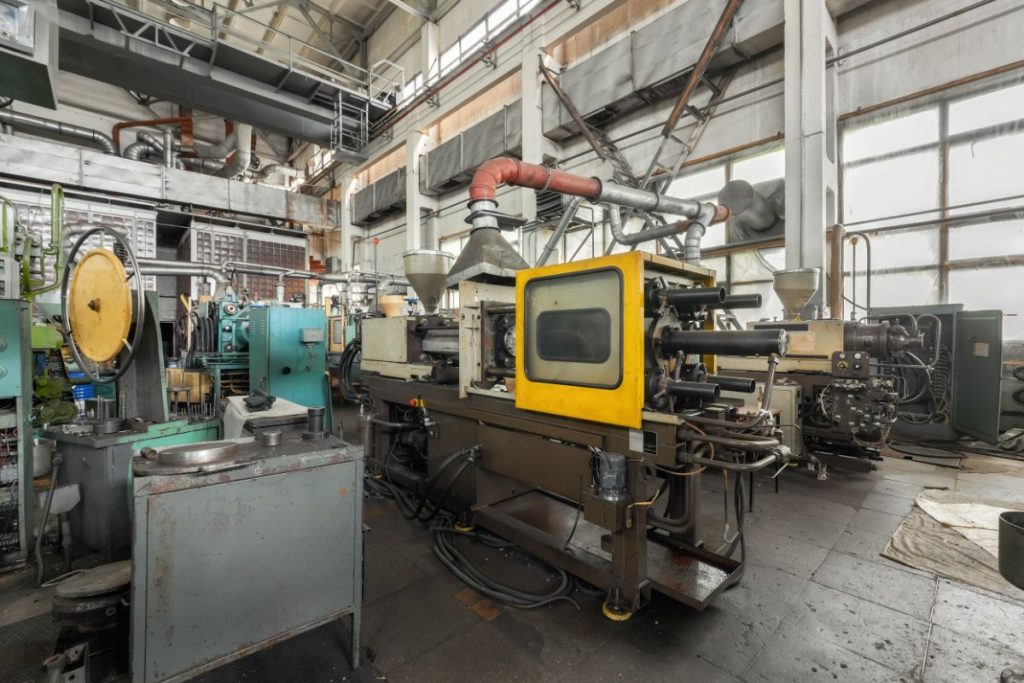What material characteristics are vital for molding large-size plastic?
- Melt Flow Index
- Melt Strength
- Impact Resistance
- Heat Deflection Temperature
- Shrinkage
- Thermal Conductivity
Overview
- This article explores the crucial role of material properties in the success of large-size plastic molding, highlighting the importance of melt flow index, melt strength, impact resistance, heat deflection temperature, shrinkage, and thermal conductivity.
- It delves into how these properties influence the molding process and product quality, using examples like Polypropylene, High-Density Polyethylene, Polycarbonate, and Polyamide to demonstrate the impact of each property on the manufacturability and functionality of large, molded parts.
In the expansive world of large-size plastic molding, particularly dominant in the Asia-Pacific region with leaders like China, India, and Japan, the choice of material stands as a cornerstone of success.
This sector, vital for industries ranging from automotive to packaging, demands more than just scale; it requires a precise selection of materials whose properties meet the stringent requirements of strength, durability, and processability.
Understanding the material properties crucial for large-size molding is crucial. This not only ensures production efficiency but also guarantees the performance and longevity of the final products.
Melt Flow Index
The melt flow index is a crucial measure of the viscosity of a plastic material when it is in a molten state. This property indicates how easily the plastic can flow when subjected to heat and pressuring the molding process.
For large-size plastic molding, a material with an appropriate MFI is necessary to ensure it can fill the mold completely and accurately without degrading.
Polypropylene is a versatile plastic with a wide range of MFI values, making it suitable for various applications, including large-size plastic molding. Its MFI can be tailored during the polymerization process, allowing for the production of grades with higher or lower flow rates as needed.
Melt Strength
Melt strength is imperative as it indicates the material’s ability to stretch or elongate without breaking under tensile stress. Plastics with high melt strength are capable of being processed in longer flow paths without losing their integrity or forming defects, such as thinning or breaking.
For example, high-density polyethylene is renowned for its robust melt strength, making it an excellent choice for large-size applications. Its thermoplastic polymer is characterized by its strong intermolecular forces, which contribute to its ability to stretch without breaking when subjected to tensile stress.
This property is crucial for producing large, complex parts with consistent wall thickness.
Impact Resistance
Impact resistance is a critical property for materials since it directly influences the durability and reliability of the final product. In practical applications, products are often exposed to various physical stresses, including drops, impacts, or continuous vibrations.
Materials with high impact resistance like polycarbonate can absorb these forces without sustaining damage such as cracking, deforming, or shattering. It’s a tough thermoplastic with a unique combination of strength, stiffness, and thermal resistance, making it an ideal choice for large-size molding products, such as protective gear, car windows and shields, and various consumer electronics cases.
Heat Deflection Temperature
The heat deflection temperature (HDT) presents a temperature at which a plastic material deforms under a specific load. This property is desirable for large-molded parts that require dimensional stability and structural integrity when subjected to thermal stress.
One good example of a plastic material with high HDT is PEEK. It allows it to be used in a wide range of applications, including automotive components, aerospace parts, electrical and electronic connectors, and medical devices. They often involve exposure to hot environments, where the material’s ability to resist deformation under heat is critical.
Shrinkage
Shrinkage refers to the reduction in the dimensions of the plastic part as it cools and solidifies in the mold. Understanding and anticipating the shrinkage rate of the material is critical for large-size molding, as even small percentages of shrinkage can translate into significant dimensional changes over large parts. Proper consideration of shrinkage is necessary for achieving precise dimensions and fit in the final product.
A material known for its well-defined shrinkage characteristics is acrylonitrile butadiene styrene (ABS). Its shrinkage property is relatively low and consistent across different conditions, which makes it possible to accurately predict and compensate for the dimensional changes that will occur during the cooling phase of the molding process.
Thermal Conductivity
Thermal conductivity describes how well a material can conduct heat. In large-size plastic molding, materials with appropriate levels of this property are chosen to ensure uniform cooling of the part, minimizing the chances of warping, sink marks, or residual stresses.
Polyamide is a category of thermoplastics with several variants, including PA 6, PA 66, among others, known for their good mechanical properties, chemical resistance, and particularly, their higher thermal conductivity compared to many other thermoplastics. This attribute makes nylon a suitable choice for applications requiring efficient heat dissipation.
Key Takeaway
These are the material properties crucial for large-size plastic molding. Each is tailored to meet the demands of this intricate process. Understanding them is crucial for manufacturers to navigate the complexities of large-size plastic molding, ensuring the success of their products in competitive markets.
Richfields Corporation is a reputable plastic mold manufacturer that provides excellent customer service. With state-of-the-art mold-making plastic equipment and machinery, we can produce high-quality plastic injection molds even in large materials. For your molding needs, contact us today to learn more about our services!
